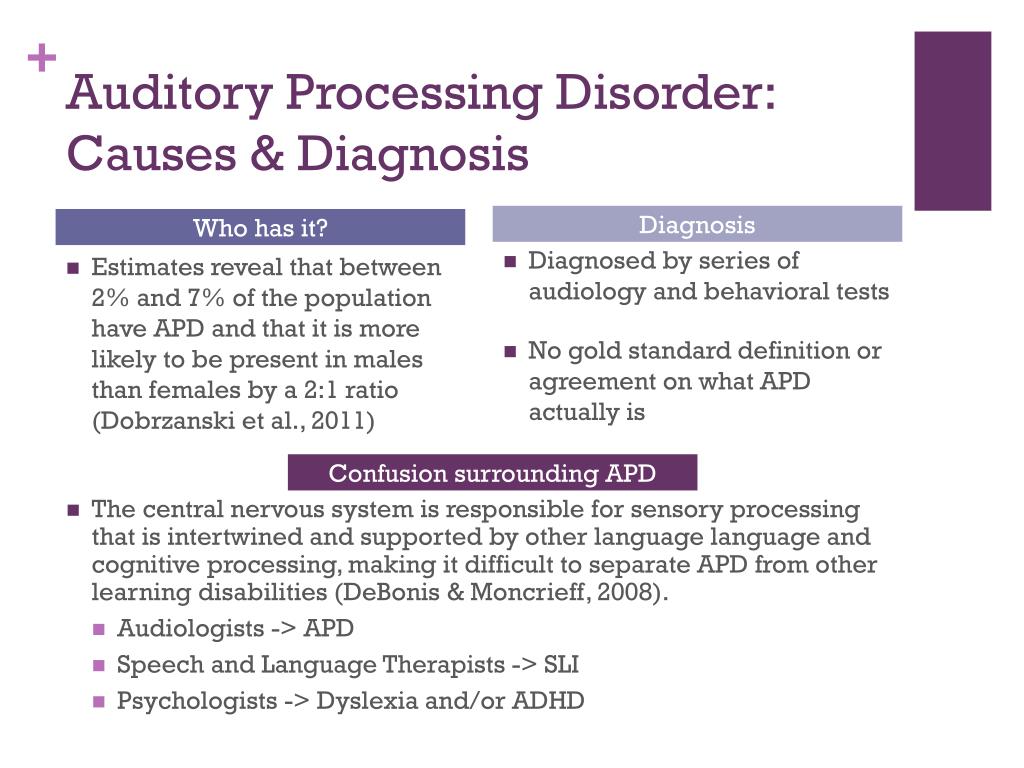
Journal of Child Psychology and Psychiatry © 2010 Association for Child and Adolescent Mental Health. These ERP findings suggest that children with ADHD evaluate conflict to a lesser extent and differ in the way their brains select appropriate responses during conflict compared with controls. Auditory Processing Disorder (APD) is an abnormality in the central auditory nervous system that affects a childs ability to understand and remember.

In addition, the conflict sustained potential was found frontally in the ADHD group but parietally in the control group. However, the difference between the congruent and the incongruent condition in the 450-550 ms time window was absent in the ADHD group compared to controls. No differences between the groups occurred in the early conflict-related ERPs. Auditory processing disorder (APD), rarely known as King-Kopetzky syndrome or auditory disability with normal hearing (ADN), is a neurodevelopmental. Children with ADHD responded more slowly, less accurately and more variably compared to controls. No deficit in interference control was found on the auditory Stroop task in children with ADHD. Twenty-four children with ADHD were compared with 24 control children (aged 8-12 years). This study was conducted to gain insight into conflict processing in children with ADHD.Įvent-related potentials (ERPs) were recorded in an auditory Stroop task.


Cognitive control is crucial to suppress interference resulting from conflicting information and can be measured by Stroop-like tasks. Impaired cognitive control has been implicated as an important developmental pathway to attention deficit/hyperactivity disorder (ADHD).


 0 kommentar(er)
0 kommentar(er)
